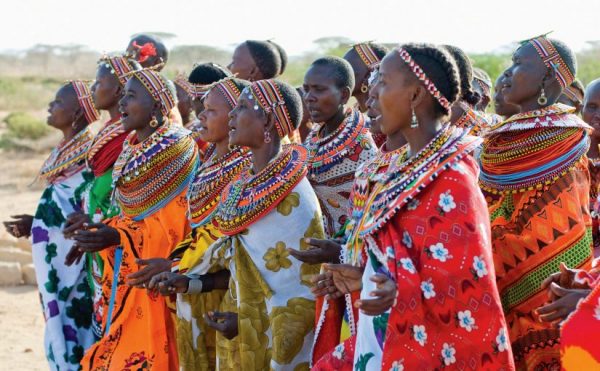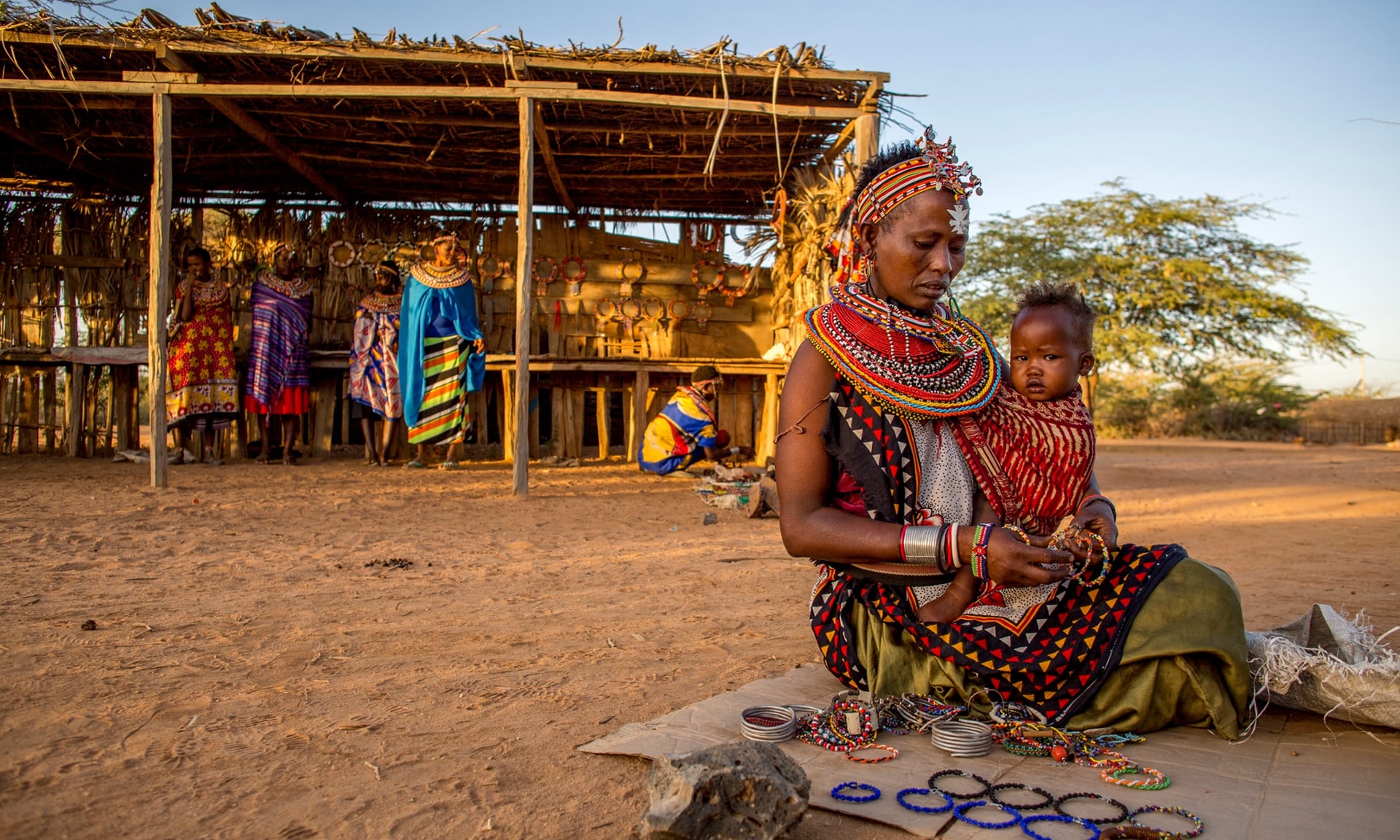
- Better Society -
- 3mins -
- 1,010 views
Umoja: a look inside the Kenyan village where men are banned
Umoja village is unique in Kenya in that it is inhabited solely by women, their children and livestock. No men are allowed, and for good reason.
No man’s land
Umoja Village in the grasslands of Samburu, in northern Kenya, is a unique place. It is inhabited only by women, their children and livestock. No men are allowed. Most of the women that live there are the survivors of rape, domestic abuse, child marriage, or female genital mutilation (FGM).
The village was founded by rape survivors as a safe space for themselves and their children
Surrounded by a protective fence of thorns, Umoja is a village in the grasslands of Samburu, in the north of Kenya. Goats munch and chickens peck and scratch, while children play and women make jewellery to sell to tourists. Their nimble fingers work quickly as they talk and laugh with each other. It is a typical Samburu village scene, except for one thing: no men live here.
In Umoja village the women wear the traditional Samburu dress of patterned skirts, brightly coloured shirts and a kanga, the colourful wrap tied about their shoulders. The ornate necklaces, made of strings of brightly coloured beads, form stunning circular patterns around their necks. The colourful clothing contrasts starkly with the arid surroundings, and the African sun that picks out the dust motes in the air.
The village was originally founded in 1990 by a group of 15 women who were survivors of rape by soldiers. Umoja’s population has since expanded to include any woman escaping child marriage, female genital mutilation (FGM), domestic violence and rape – all of which are cultural norms among the Samburu.
Source: HowAfrica

There are currently 47 women and 200 children in Umoja village
Rebecca Lolosoli is the current village matriarch and one of the founders of Umoja. She was in a hospital bed recovering from a beating by a group of men when she came up with the idea of a women-only community. The beating was an attempt to teach her a lesson for daring to speak to other women in her village about their rights.
The Samburu are closely related to the Maasai tribe, and speak a similar language. They usually live in groups of between five and ten families and are semi-nomadic pastoralists. Theirs is a deeply patriarchal culture. At village meetings men sit in an inner circle to discuss important village issues, while the women sit on the outside, only occasionally allowed to express an opinion.
Umoja’s first members all came from the isolated Samburu villages dotted across the Rift valley. Since then, women and girls who hear of the refuge come and learn how to trade, raise their children and live without fear of male violence and discrimination.
Statistics show that there are currently 47 women and 200 children in Umoja. Although the inhabitants live extremely frugally, these enterprising women and girls earn a regular income that provides food, clothing and shelter for all.
A kilometre away by the river, village leaders run a campsite, where groups of safari tourists stay. Many of these tourists, and others passing through nearby nature reserves, also visit Umoja. The women charge a modest entrance fee and hope that, once in the village, the visitors will buy jewellery made by the women in the craft centre.
One of the unique features of the Umoja community is that some of the more experienced residents train and educate women and girls from surrounding Samburu villages on issues such as early marriages and FGM.
Source: HowAfrica

The women can speak freely of their fears, dreams, goals and achievements
There is a tree known as the “tree of speech”, where the women gather to make decisions. There the women also speak freely of their fears, dreams, goals and achievements.
The only man seen in Umoja is Lotukoi. He arrives in the village every day, before sunrise, to tend to the herds. “Children, firewood and cooking are women’s business, and men look after the animals,” he said.
In 2003, a group of women from Umoja met with solicitors from Leigh Day, a UK-based practice that held a monthly surgery in nearby Archers Post to work with locals who had been injured by bombs left behind by the British army.
The women disclosed allegations of rape spanning 30 years. Most women reported cases of gang rape by soldiers, who attacked the women when they were out gathering firewood or fetching clean water.
Many of the women told PH, in an in-depth article for How Africa (recommended), that they cannot imagine living with a man again after they have been living in Umoja.
Mary, 34, who says she was sold to a man of 80 for a herd of cows when she was 16 years old said: “I don’t want to ever leave this supportive community of women.”
Rape is a deeply traumatic experience and a sensitive issue, that most times is either not reported or under-reported to fieldworkers and the authorities, no matter how carefully designed the process applied. However, this risk can be minimized by giving sensitivity training to fieldworkers by qualified counsellors.
Source: HowAfrica

